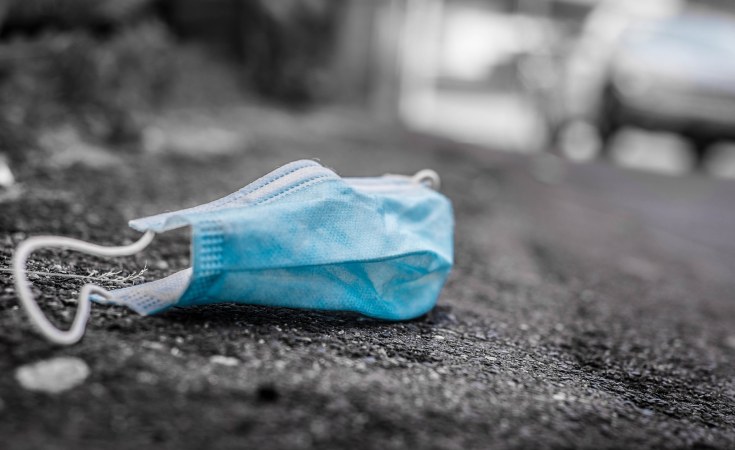Nigeria is looking to apply for the second round of funding with a $500 million envelope for eligible countries.
The Nigerian government has deliberated on strategic measures to bolster the country's health system and its proposal for the World Bank's Pandemic Fund.
Speaking at a National Dialogue on Nigeria's Pandemic Fund Application in Abuja on Monday, the Minister of Health and Social Welfare, Muhammad Pate, said the fund is a critical resource for pandemic preparedness and to combat health threats in Nigeria.
The Pandemic Fund is a collaborative initiative aimed at strengthening pandemic prevention, preparedness, and response capacities in low- and middle-income countries.
It is a partnership hosted by the World Bank with the World Health Organisation (WHO) as technical lead.
Nigeria is looking to apply for the second round of funding with a $500 million envelope for eligible countries.
Mr Pate said in his opening remarks that the stakeholders' dialogue is to craft a coherent proposal that Nigeria can present to the global pandemic fund negotiations.
He also outlined the implementation of a sector-wide approach to enhance surveillance, detection, and readiness for potential outbreaks, emphasising the nation's commitment to self-reliance in health security.
Essence of dialogue
The Director-General of the Nigeria Centre for Disease Control and Prevention (NCDC), Jide Idris, explained that the dialogue was aimed at fostering transparency and collaboration to address the challenges associated with pandemics.
Mr Idris said: "This dialogue serves as a platform for meaningful exchange, to refine strategies, ensure accountability and optimisation in our application so that our national priorities will be clearly defined to develop a comprehensive and compelling grant application, with a unified national voice i.e. a one country proposal.
"Learning from the COVID-19 pandemic, it is evident that our country needs a robust health security infrastructure with emphasis on prevention, disease surveillance, and preparedness and response capabilities."
In his remarks, Mr Pate further reiterated that health security was a critical pillar of the 4-point agenda on health of the Tinubu administration.
"The pandemic fund represents a critical resource in our arsenal to combat health threats. While it is not the only tool available, it is a significant one that can help facilitate the cross-sectoral collaboration necessary to address complex health challenges effectively," he noted.
The minister also cited a recent study showing the presence of potential pandemic pathogens in fruit bats in an urban area, and he underscored the importance of the OneHealth approach and collaboration across ministries
Pandemic preparedness, funding
In her comments, the Programme Director of the Division of Global Health Protection at US CDC Nigeria, Farah Husain, noted that there is a shortage of funding to prevent pandemic diseases in Nigeria
Ms Husain noted that the CDC recognises the urgent need to continue to invest resources to address the long-term shortage of funding for pandemic preparedness.
She also emphasised the need for collective efforts from various stakeholders, including government institutions and international partners, to build resilient systems and effectively tackle health security challenges.
She acknowledged the importance of innovative financing mechanisms like the pandemic fund in driving results and reversing the trend of underfunding health security initiatives.
The WHO Representative in Nigeria, Walter Mulombo, in his remarks, called for a unified approach and increased investment in health security measures to safeguard the population and mitigate future risks.
Mr Mulombo stressed the significance of initiatives like the pandemic plan in enhancing readiness for future pandemics and health emergencies.
He also highlighted the need for funding and support for organisations like NCDC to drive these efforts forward.
Also, in her goodwill message, the Senior Country Manager at Gavi, Jessica Crawford, said the organisation is excited, and looking towards providing support for pandemic responses.
Other development partners at the event, including the US CDC, and Resolve to Save Lives, pledged commitment to supporting Nigeria's response to disease.
More about pandemic fund
Speaking on the pandemic Fund, the Head of Global Health Security Programme at the Infectious Diseases Institute Mohammed Lamorde stated that the second call for proposal has an envelope of $500 million but the amount that Nigeria can apply for as a country is $25 million.
He, however, noted Nigeria will be working with the Ministry of Environment as well to ensure a holistic view and that the application is done with one health perspective.
Established in September 2022 and officially launched during a G20 meeting, the Pandemic Fund is the first multilateral financing mechanism dedicated to providing multi-year grants to help low - and middle-income countries prepare for future pandemics.
According to the World Bank, the fund received 179 applications from 133 countries in its first Call for Proposals.
The first round of awards was granted in July 2023, totalling $338 million that will leverage over $2 billion to help 37 countries strengthen their capacity to prevent, prepare for, and respond to pandemics.
Over 30 per cent of the grants allocated are for projects in sub-Saharan Africa, and over 75 per cent are in low and middle-income countries.


